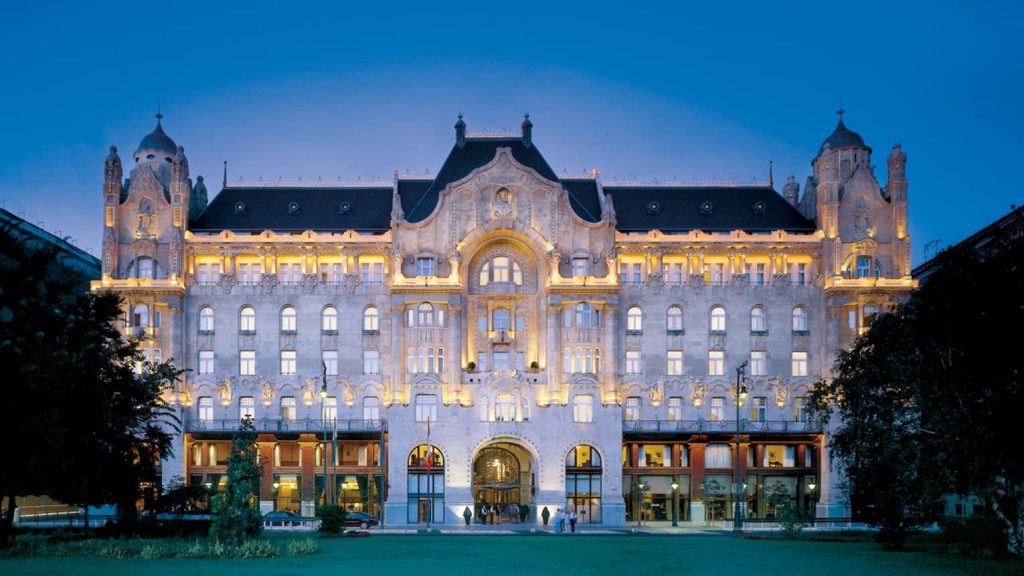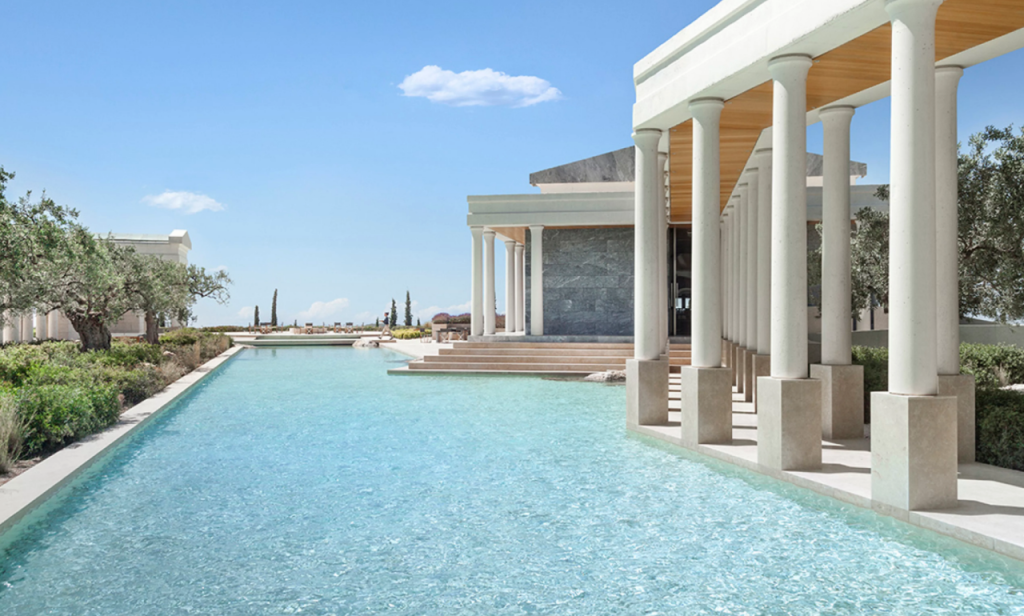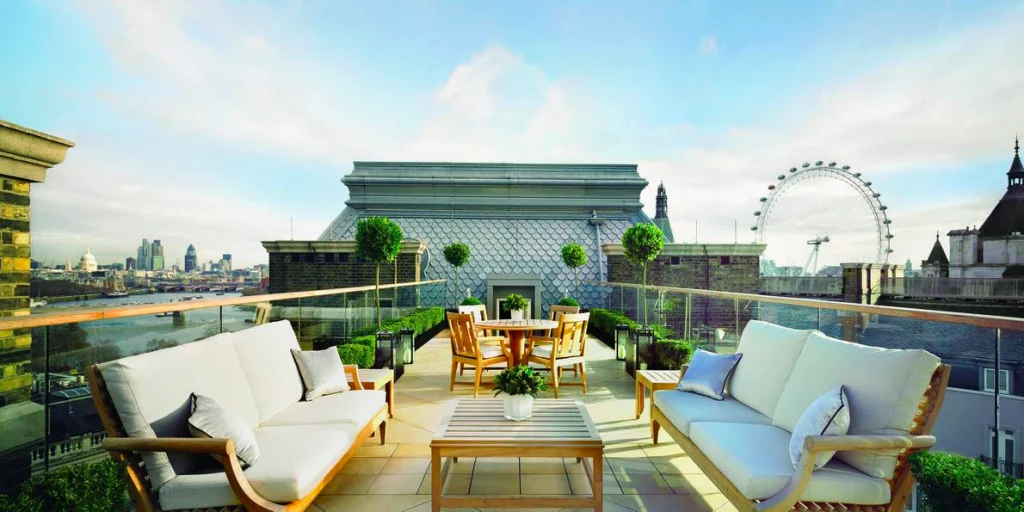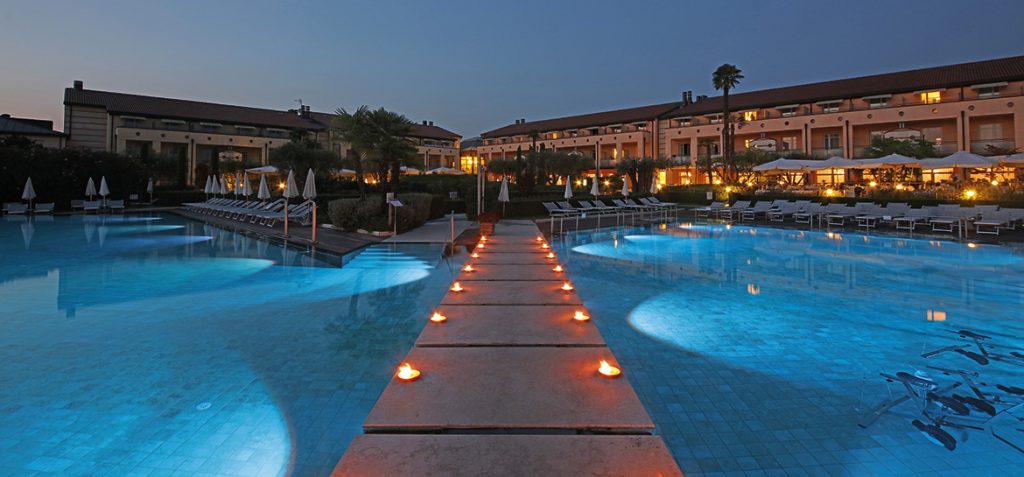Luxury hotels in Europe represent the pinnacle of hospitality, offering discerning travelers an unparalleled blend of opulence, history, and world-class service. These exceptional establishments go beyond mere accommodation, providing immersive experiences that reflect the rich cultural tapestry of the continent. From restored medieval castles to cutting-edge architectural marvels, luxury hotels Europe cater to those seeking the extraordinary.
The allure of European luxury accommodations lies in their ability to transport guests to a world of refined elegance. Whether it’s savoring Michelin-starred cuisine, unwinding in state-of-the-art spas, or sleeping in suites once occupied by royalty, these hotels offer a taste of the sublime. The best hotels Europe has to offer seamlessly combine old-world charm with modern amenities, creating an atmosphere of timeless sophistication.
In this comprehensive guide, we’ll explore the diverse landscape of luxury hotels in Europe, from iconic grande dames to intimate boutique hotels. We’ll delve into the evolution of European luxury hospitality, uncover hidden gems, and highlight the most innovative and coolest hotels in Europe. Join us as we embark on a journey through the continent’s most lavish accommodations, revealing why Europe remains the ultimate destination for luxury travel enthusiasts.
The evolution of luxury hotels in Europe
The concept of luxury hotels Europe has undergone a remarkable transformation over the centuries, reflecting changing societal values and technological advancements. Historically, luxury accommodations were the preserve of nobility and the elite, often found in grand palaces or opulent mansions converted to cater to discerning travelers.
In the 18th and 19th centuries, the Grand Tour popularized travel among European aristocrats, leading to the establishment of iconic hotels like The Savoy in London and the Ritz in Paris. These establishments set new standards for luxury, introducing innovations such as en-suite bathrooms and electric lighting. The Belle Époque era saw a proliferation of palatial luxury hotels in Europe, each vying to outdo the other in grandeur and service.

The post-war period brought democratization to luxury travel, with a growing middle class seeking upscale experiences. This led to the rise of international hotel chains, standardizing luxury across borders while maintaining local character.
Today, the landscape of luxury hotels Europe offers has evolved dramatically. Modern trends in European luxury hospitality focus on:
- Personalization: Tailoring experiences to individual guest preferences, from pillow menus to bespoke city tours.
- Sustainability: Eco-friendly practices are now a hallmark of luxury, with hotels incorporating green technologies and supporting local communities.
- Technology integration: From smartphone room keys to AI-powered concierge services, technology enhances guest experiences without compromising personal touch.
- Wellness focus: State-of-the-art spas, mindfulness programs, and health-centric cuisine cater to guests’ holistic well-being.
- Authenticity: The best hotels Europe boasts now emphasize genuine local experiences, offering immersive cultural programs and showcasing regional artisanship.
- Design innovation: Contemporary luxury often means cutting-edge architecture and interior design, with some properties becoming destinations in their own right.
These trends have redefined what it means to be among the best hotels Europe has to offer. Today’s luxury traveler seeks more than just opulence; they desire meaningful, transformative experiences that blend comfort, culture, and conscience. As the industry continues to evolve, European luxury hotels remain at the forefront, setting global standards for exceptional hospitality.
Luxury hotels Europe: What makes a hotel truly luxurious?
The concept of luxury in hospitality is multifaceted, encompassing a range of elements that elevate a hotel from merely comfortable to truly exceptional. Luxury hotels in Europe set themselves apart through a combination of distinctive features that cater to the most discerning travelers.
Defining characteristics of luxury hotels include:
- Impeccable Service: Personalized attention and anticipatory care are hallmarks of luxury hospitality. Staff members are meticulously trained to provide discreet yet attentive service, often remembering guests’ preferences and anticipating their needs.
- Opulent Design: From grand architectural features to exquisite interior decor, luxury hotels create an atmosphere of refined elegance. Every detail, from custom furnishings to curated artwork, contributes to an ambiance of sophistication.
- Exceptional Amenities: World-class spas, Michelin-starred restaurants, and state-of-the-art fitness centers are standard offerings in the best hotels Europe has to offer.
- Prime Locations: Whether nestled in historic city centers or perched in breathtaking natural settings, luxury hotels boast unparalleled locations that enhance the guest experience.
European standards of luxury often differ from global norms, emphasizing:
- Cultural Heritage: Many luxury hotels in Europe are housed in historic buildings, offering a unique blend of old-world charm and modern comfort.
- Culinary Excellence: European luxury hotels frequently showcase regional gastronomy, with an emphasis on local, seasonal ingredients and traditional techniques.
- Wellness Integration: Holistic approaches to well-being, incorporating thermal baths, innovative spa treatments, and mindfulness practices, are particularly prominent in European luxury hospitality.
While global luxury standards focus on cutting-edge technology and contemporary design, European luxury often leans towards a more classic, refined aesthetic that celebrates the continent’s rich cultural heritage. This unique approach ensures that luxury hotels Europe offers remain at the forefront of global hospitality, providing unparalleled experiences that blend tradition with innovation.
Top 10 luxury hotels in Europe

Europe’s luxury hotel landscape is a tapestry of opulence, history, and unparalleled service. From historic palaces to modern architectural marvels, these establishments represent the pinnacle of hospitality. Our curated list of the top 10 luxury hotels Europe has to offer showcases a diverse range of experiences, each promising an unforgettable stay. These properties not only exemplify the highest standards of comfort and elegance but also reflect the rich cultural heritage of their respective locations. Whether you’re seeking a romantic getaway, a cultural immersion, or simply the best in luxury accommodation, these hotels stand out as the cream of the crop among the best hotels Europe has to offer. Let’s embark on a journey through these bastions of luxury hotels Europe, where every detail is crafted to perfection and every moment is designed to create lasting memories.
Six Senses Kaplankaya, Turkey
Nestled along the pristine Aegean coastline, Six Senses Kaplankaya stands as a paragon among luxury hotels Europe has to offer. This contemporary masterpiece, designed by Clodagh Design, seamlessly blends into its natural surroundings, featuring ancient olive groves and breathtaking coastal vistas. Located near Bodrum, the resort is not just a haven of luxury but also a testament to sustainable development in Turkey.
The hotel boasts an impressive 10,000 square meter Six Senses Spa, offering a holistic approach to wellness with innovative treatments and programs. Culinary enthusiasts can indulge in exquisite dining experiences at venues like Meze by the Sea and Wild Thyme, showcasing the best of local and international cuisines. With its private beaches, multiple swimming pools, and state-of-the-art fitness facilities, Six Senses Kaplankaya caters to every aspect of luxury living.
Notably, the resort has hosted the prestigious ‘Harvest, The Davos of Wellness’ event, attracting global luminaries and establishing itself as a premier destination for those seeking the pinnacle of wellness and luxury.
Belmond Hotel Cipriani, Venice
The Belmond Hotel Cipriani, a jewel among the best hotels Europe boasts, exudes timeless elegance on the serene Giudecca Island in Venice. Founded by Giuseppe Cipriani, the mastermind behind the legendary Harry’s Bar, this 1958 establishment has become luxury hotels Europe synonymous with Venetian luxury.
Set amidst lush gardens, the hotel offers an unparalleled 270-degree view encompassing the lagoon, Doge’s Palace, and St Mark’s Square. Its Olympic-sized seawater swimming pool – a rarity in Venice – is just one of its many distinguished features. The wellness center provides a sanctuary for relaxation, while the tennis court offers active pursuits.
Gastronomy reaches new heights at the Michelin-starred Restaurant Oro, and the informal Cip’s Club presents stunning vistas alongside delightful cuisine. The hotel’s guest list reads like a who’s who of global celebrities, including Elizabeth Taylor, Paul Newman, Sophia Loren, Brad Pitt, and George Clooney, who chose this venue for his wedding. As a prime location for elite gatherings, Belmond Hotel Cipriani continues to be at the forefront of luxury hotels in Europe.
Ashford Castle, Ireland
Nestled in the heart of County Mayo, Ashford Castle is a testament to Ireland’s rich history and one of the most iconic luxury hotels Europe has to offer. This 13th-century castle, once owned by the Guinness family, has been meticulously restored to blend medieval grandeur with modern opulence.
Set on a 350-acre estate, Ashford Castle offers a plethora of activities including falconry, horseback riding, and golf. The hotel’s 83 rooms and suites are individually designed, featuring antique furnishings and spectacular views of Lough Corrib. The spa, housed in a bronze conservatory, provides a serene retreat with its indoor ozone-filtrated pool and range of organic treatments.
Culinary experiences at Ashford Castle are equally impressive, with the George V Dining Room offering exquisite fine dining. The castle has hosted numerous dignitaries and celebrities, including John Lennon, Brad Pitt, and Pierce Brosnan. It also served as the backdrop for the classic film “The Quiet Man,” adding to its cinematic allure.
Aman Venice, Italy
Aman Venice, housed in the 16th-century Palazzo Papadopoli on the Grand Canal, represents the pinnacle of Venetian luxury. This palazzo, one of the eight monumental palazzos on the Grand Canal, offers guests a unique opportunity to immerse themselves in Venetian history and culture.
The hotel features just 24 rooms and suites, many adorned with protected frescoes and reliefs. Its two private gardens are a rarity in Venice, providing tranquil spaces for relaxation. The Dining Room, led by a Michelin-starred chef, offers exceptional Italian cuisine with views of the Grand Canal.
Aman Venice gained global attention when George and Amal Clooney chose it for their wedding celebration. The hotel’s commitment to preserving Venetian heritage while offering unparalleled luxury makes it a standout among the best hotels Europe has to showcase.
Le Bristol Paris, France
Le Bristol Paris, an icon of French elegance since 1925, is a jewel in the crown of luxury hotels in Europe. Located on the prestigious rue du Faubourg Saint-Honoré, it embodies Parisian chic and refinement.
The hotel’s 190 rooms and suites are decorated in classic 18th-century style, featuring Louis XV and Louis XVI furniture. Its crowning glory is the rooftop swimming pool, designed to resemble a ship’s deck, offering panoramic views of Paris. The three-Michelin-starred Epicure restaurant, helmed by Chef Eric Frechon, is a gastronomic temple that attracts food lovers from around the world.
Le Bristol’s Le Jardin Français and its 1,200-square-meter interior garden provide an oasis of calm in the bustling city. The hotel has been a favorite among celebrities and politicians, hosting guests like Charlie Chaplin, Rita Hayworth, and more recently, Angelina Jolie and Brad Pitt. Its appearance in the Woody Allen film “Midnight in Paris” further cemented its place in popular culture.
Soneva Jani, Maldives
Situated in the Noonu Atoll of the Maldives, Soneva Jani is a pinnacle of luxury hotels in Europe and beyond. This overwater paradise features 51 spacious villas, each with its own private pool and direct access to the crystal-clear lagoon. The resort’s most iconic feature is its retractable roofs, allowing guests to stargaze from the comfort of their beds.
Soneva Jani’s commitment to sustainability is evident in its eco-friendly design and initiatives. The resort offers unique experiences such as an overwater silent cinema and an observatory for stargazing. Its dining options include the “So Engaging” chef’s table and the overwater “So Imaginative” restaurant, providing guests with unforgettable culinary journeys.
Luxury hotels Europe: Celebrity guests have included the likes of Madonna and Leonardo DiCaprio, drawn to the resort’s unparalleled privacy and luxury. Soneva Jani has redefined the concept of luxury hotels in Europe and the Maldives, setting new standards for sustainable luxury in the hospitality industry.
Aman Venice, Italy
Housed in the 16th-century Palazzo Papadopoli on the Grand Canal, Aman Venice is one of the most prestigious luxury hotels Europe has to offer. This opulent retreat seamlessly blends Renaissance architecture with contemporary design, featuring just 24 rooms and suites, many adorned with protected frescoes and reliefs.
The hotel’s two private gardens are a rarity in Venice, providing tranquil spaces for relaxation. Its dining venues, including the canal-side restaurant, offer exceptional Italian cuisine using locally sourced ingredients. The Aman Spa provides a serene sanctuary for rejuvenation, complete with traditional Venetian treatments.
Aman Venice gained global attention when George and Amal Clooney chose it for their wedding celebration. The hotel’s commitment to preserving Venetian heritage while offering unparalleled luxury makes it a standout among the best hotels Europe has to showcase.
Mandarin Oriental, Barcelona
Located on the iconic Passeig de Gràcia, Mandarin Oriental, Barcelona, is a beacon of luxury in the heart of the Catalan capital. This avant-garde hotel, housed in a former bank building, offers 120 rooms and suites designed by Patricia Urquiola, blending contemporary aesthetics with subtle oriental touches.
The hotel’s rooftop terrace, complete with a pool and panoramic views of Barcelona, is a highlight for guests. Its culinary offerings include the two-Michelin-starred Moments restaurant, overseen by the renowned chef Carme Ruscalleda. The spa, one of the largest in the city, provides a haven of tranquility and rejuvenation.
Luxury hotels Europe: Mandarin Oriental, Barcelona, has hosted numerous celebrities and dignitaries, drawn to its prime location and exceptional service. Its unique blend of Catalan culture and Asian hospitality philosophy places it firmly among the top luxury hotels in Europe.
The Ritz, Paris
An institution in the world of luxury hospitality, The Ritz Paris epitomizes French elegance and refinement. Reopened in 2016 after an extensive four-year renovation, this legendary hotel maintains its Belle Époque charm while offering modern amenities expected of the best hotels Europe has to offer.
The 142 rooms and suites, including the famous Coco Chanel Suite where the designer lived for 34 years, exude opulence with their antique furnishings and silk curtains. The hotel’s Bar Hemingway, named after its famous patron Ernest Hemingway, is considered one of the world’s best bars.
The Ritz Paris has been a favorite among royalty, politicians, and celebrities throughout its history. Its Ecole Ritz Escoffier cooking school and the world’s first Chanel spa add to its allure, solidifying its position as one of the most iconic luxury hotels Europe boasts.
Badrutt’s Palace Hotel, St. Moritz, Switzerland
Perched in the heart of the Swiss Alps, Badrutt’s Palace Hotel has been synonymous with luxury since 1896. This grand dame of Alpine hospitality offers 157 rooms and suites, each with breathtaking views of the Engadine mountains or Lake St. Moritz.
The hotel’s legendary service includes a 24-hour butler service and a ski butler during the winter season. Its wellness offerings are equally impressive, featuring an indoor pool with mountain views and the Palace Wellness spa. Culinary experiences range from the Michelin-starred IGNIV by Andreas Caminada to the iconic King’s Club, Europe’s oldest nightclub.
Badrutt’s Palace has hosted royalty, celebrities, and discerning travelers for over a century. Its blend of timeless elegance and modern luxury, coupled with its stunning Alpine setting, cements its place among the finest luxury hotels Europe has to offer.
Boutique Luxury: Hidden Gems
While grand hotels often dominate discussions of luxury hotels Europe, the continent is also home to an array of exquisite boutique establishments that offer intimate, personalized experiences. Boutique luxury hotels are typically smaller properties, often with fewer than 100 rooms, that prioritize unique design, personalized service, and distinctive character. These hidden gems provide an alternative to larger luxury chains, offering guests a more intimate and often more culturally immersive experience.

The best boutique hotels Europe has to offer are characterized by their attention to detail, locally-inspired decor, and ability to provide guests with a sense of place. They often occupy historic buildings or unique locations, blending modern luxury with authentic local charm. Here are some exceptional examples of boutique luxury across Europe:
- Palazzo Avino, Ravello, Italy
Perched on the Amalfi Coast, this 12th-century villa turned 43-room hotel offers breathtaking views of the Mediterranean. Its Michelin-starred restaurant, Rossellinis, and the exclusive Clubhouse by the Sea make it a standout among luxury hotels in Europe. The pink palace, as it’s affectionately known, combines historic charm with modern amenities, including a stunning rooftop solarium and pool.
- Hotel Borg, Reykjavik, Iceland
Built in 1930, this Art Deco gem in the heart of Reykjavik offers 99 rooms and suites that blend period furnishings with contemporary comforts. Its location on Austurvöllur square puts guests at the center of Icelandic culture and history. The hotel’s spa, featuring a steam bath, sauna, and hot tub, provides a perfect retreat after exploring the city or the nearby natural wonders.
- Domaine des Etangs, Massignac, France
Set in a restored 11th-century château, this 29-room property sprawls across 2,500 acres of French countryside. It offers a unique blend of art, nature, and wellness, with its own Michelin-starred restaurant, extensive art collection, and thermal baths. The hotel’s commitment to sustainability and connection to nature sets it apart in the world of luxury hospitality.
- Finca Cortesin, Málaga, Spain
This 67-suite hotel on Spain’s Costa del Sol is a haven of tranquility and elegance. With its award-winning golf course, three swimming pools, and a 2,200 square meter spa, it offers a comprehensive luxury experience. The hotel’s design draws inspiration from traditional Andalusian architecture, creating a sense of place that is both luxurious and authentic.
- The Newt in Somerset, England
A relative newcomer to the scene of best boutique hotels Europe, The Newt opened in 2019 and quickly made a name for itself. Set in a Georgian country house and surrounded by extensive gardens, this 23-room hotel offers a unique blend of historic charm and contemporary luxury. Its commitment to sustainability, on-site cyder press, and world-class spa make it a standout in the English countryside.
These boutique properties exemplify the diversity and quality of luxury accommodations across Europe. By offering unique, intimate experiences rooted in local culture and history, they provide discerning travelers with alternatives to larger luxury chains, enriching the landscape of luxury hotels Europe and setting new standards for personalized hospitality.
Luxury hotel experiences across European regions
The landscape of luxury hotels in Europe is as diverse as the continent itself, with each region offering unique experiences that reflect local culture, history, and natural surroundings. From the fjords of Scandinavia to the sun-soaked Mediterranean coast, luxury accommodations across Europe cater to discerning travelers seeking unforgettable stays.
Luxury hotels Europe: In Northern Europe, luxury often means embracing nature’s raw beauty. The Arctic Treehouse Hotel in Finnish Lapland exemplifies this approach, offering glass-walled suites perched among the treetops, providing stunning views of the Northern Lights. Meanwhile, in Sweden, the Icehotel presents a truly unique luxury experience, with rooms sculpted entirely from ice and snow, redefining the concept of coolest hotels in Europe quite literally.

Southern Europe’s luxury offerings are often steeped in history and Mediterranean charm. In Italy, the Belmond Hotel Caruso on the Amalfi Coast occupies a restored 11th-century palace, offering guests a taste of la dolce vita with infinity pools overlooking the sea. Greece’s Mystique in Santorini, carved into the rugged Caldera cliffs, provides a perfect blend of traditional Cycladic architecture and modern luxury, making it one of the best hotels Europe has to offer in terms of romantic getaways.
Eastern Europe’s luxury hotel scene is rapidly evolving, combining rich cultural heritage with contemporary design. The Four Seasons Hotel Gresham Palace in Budapest stands as a prime example, housed in an Art Nouveau landmark overlooking the Danube. In Prague, the Mandarin Oriental occupies a former monastery, seamlessly blending Czech history with Asian-inspired luxury.
Western Europe continues to set global standards for luxury hospitality. In Paris, the recently opened Cheval Blanc Paris, situated in the historic La Samaritaine building, offers unparalleled views of the Seine and cutting-edge design. London’s The Connaught in Mayfair represents timeless British luxury, with its Michelin-starred dining and award-winning cocktail bar.
What sets European luxury hotels?
What sets European luxury hotels apart is their ability to offer immersive cultural experiences. Many properties have begun to focus on showcasing local artisanship and culinary traditions. For instance, the Fife Arms in Scotland displays an extensive collection of Scottish art and offers whisky tastings from local distilleries. In Spain, the Finca Cortesin in Andalusia provides guests with authentic flamenco experiences and tours of nearby white villages.
Luxury hotels Europe: Sustainability is becoming increasingly important in the European luxury hotel sector. Properties like the Whitepod Eco-Luxury Hotel in Switzerland and the Scarlet Hotel in Cornwall, UK, demonstrate that eco-consciousness and luxury can coexist, offering high-end experiences with minimal environmental impact.
Wellness is another area where luxury hotels in Europe are excelling. The SHA Wellness Clinic in Spain and Lanserhof Tegernsee in Germany offer state-of-the-art health and wellness programs, combining luxury accommodations with cutting-edge medical treatments and holistic therapies.
The future of luxury hotels in Europe
The landscape of luxury hotels Europe is poised for exciting transformations in the coming years. As the industry recovers from the pandemic, a surge in demand for high-end accommodations is driving rapid expansion across the continent. By 2028, we can expect a remarkable 52.8% increase in luxury hotel stock, with brands like Mandarin Oriental and Six Senses leading the charge.
Emerging trends shaping the future of luxury hotels in Europe include:
- Sustainability focus: Eco-friendly practices and green certifications are becoming essential for attracting environmentally conscious travelers.
- Technological integration: Smart technologies like keyless entry and personalized in-room controls are enhancing guest experiences.
- Wellness tourism: Hotels are expanding their offerings to include state-of-the-art spas and holistic health programs.
- Experiential luxury: Unique cultural tours and bespoke experiences are becoming key differentiators.
- Diversification into resort locations: Many brands are expanding beyond urban centers to capture the growing demand for luxury retreats.
The best hotels Europe has to offer will likely be those that successfully blend cultural heritage with modern amenities, sustainability with opulence, and personalized service with cutting-edge technology. As the industry evolves, we can anticipate a new era of European luxury hospitality that caters to the discerning traveler’s every need while embracing innovation and responsibility.